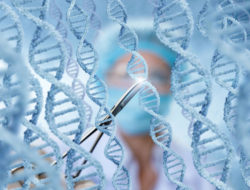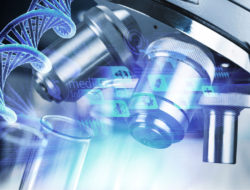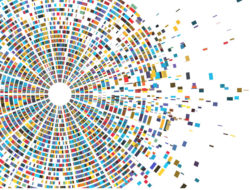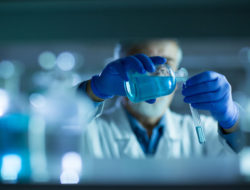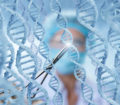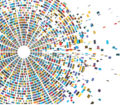Finding a way to ship vials of fecal and skin samples from a remote Moroccan shoreline to a lab in San Diego in less than 48 hours, all to unlock clues about the human microbiome, sounds like the plot from a 21st-century Indiana Jones film. But for UC San Diego chemistry doctoral student Cliff Kapono, it was just another day in the life as he set out to better understand the ecosystem of microbes and bacteria that resides in all of us.
Kapono has been getting attention for his recent Surfer Biome project, a yearlong study that involves collecting samples from surfers around the world to analyze the unique bacterial fingerprints of their gut and skin. Called the human microbiome, it’s still new territory for scientists—and Kapono’s approach is so novel that he was recently featured in the New York Times.
“What we’re trying to do is see if we can find microbial or molecular signatures from different surfers and relate that back to where they’re from,” Kapono says. “It’s like a new way of fingerprinting, but instead of actual fingerprints we’re looking at personal molecules and chemicals to begin distinguishing people.”
The project took him to England, Ireland, Morocco, San Francisco, his home state of Hawaii, and San Diego. At each surf spot, he hit the waves with locals and chatted about his project, asking them to volunteer. He got about 500 samples and sent them to his lab at UCSD, and he’s analyzing the data into something he hopes is “meaningful and translatable to the public.”
FedEx-ing Poop
Kapono gave volunteers a microbe collection kit to swab their mouths, navel, and surfboard, and to supply a fecal sample if they were willing. Shipping the samples back was a logistical puzzle, especially from Morocco. He had to pack the vials in dry ice, which he couldn’t find in the coastal town of Agadir.
A surfer he met called his mother in Casablanca—five hours away—who had someone drive through the night to get Kapono the dry ice. The next morning he went to the nearest FedEx, and the clerks almost refused to ship the package. “It was legal for me to send nonhazardous biological waste, but they had never shipped shit before,” Kapono laughs. —Marie Tutko
Tags: Cliff Kapono, Medical Research, People, Tip Sheet, UCSD











